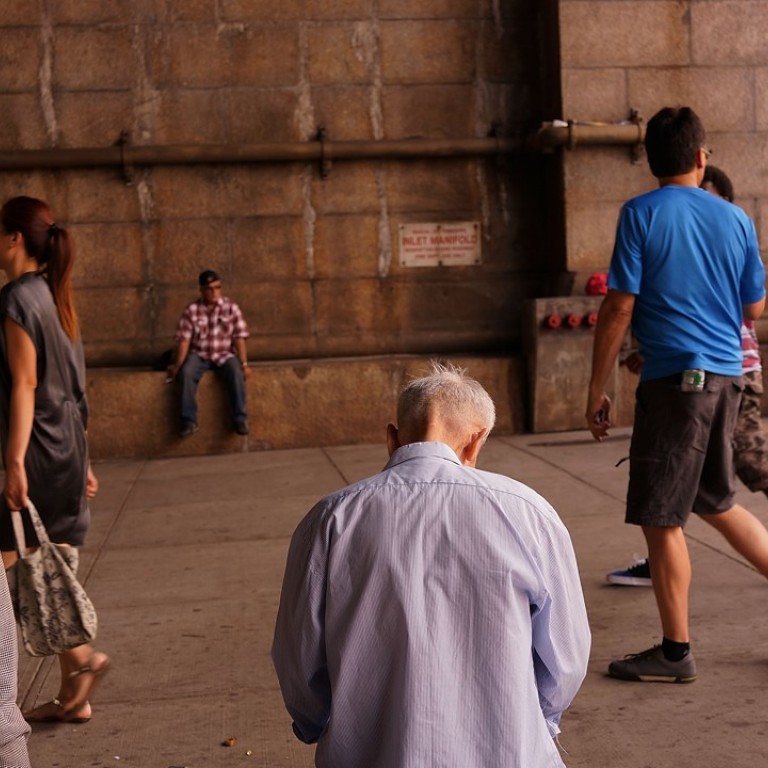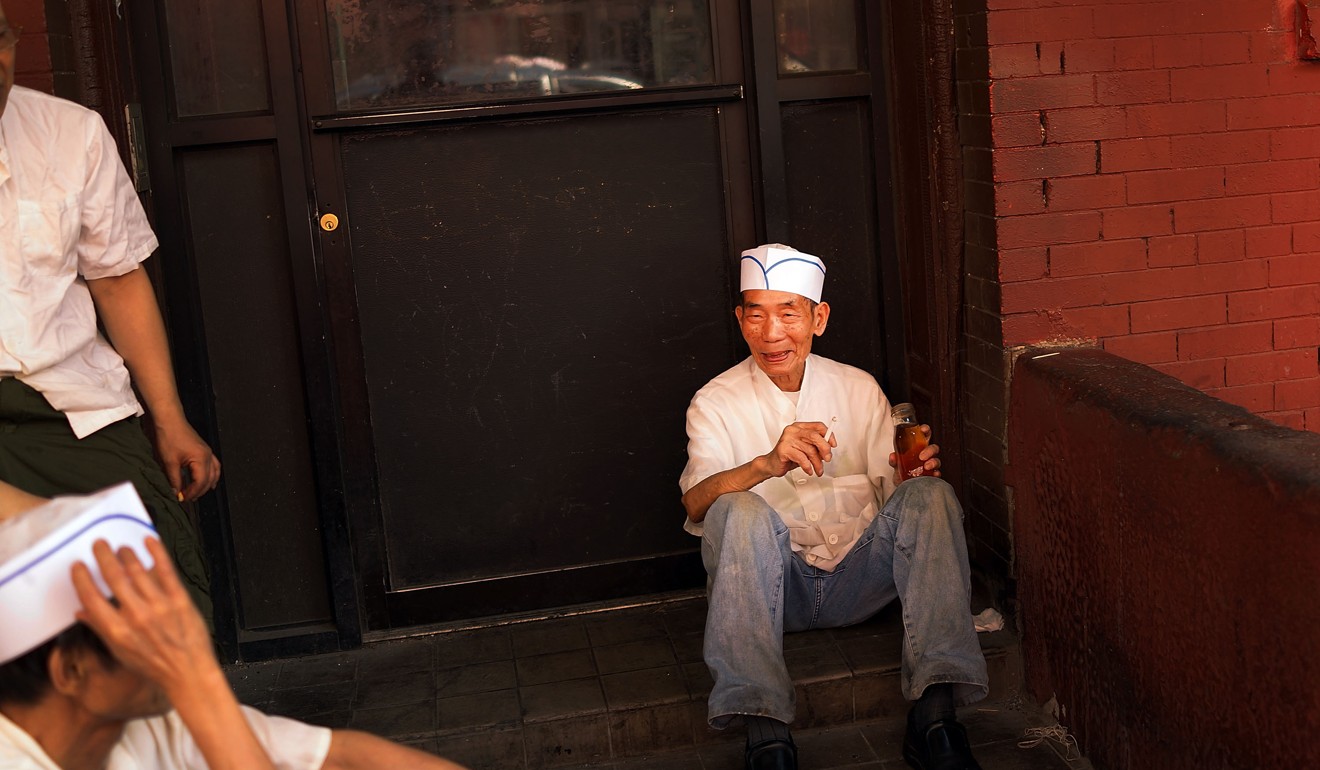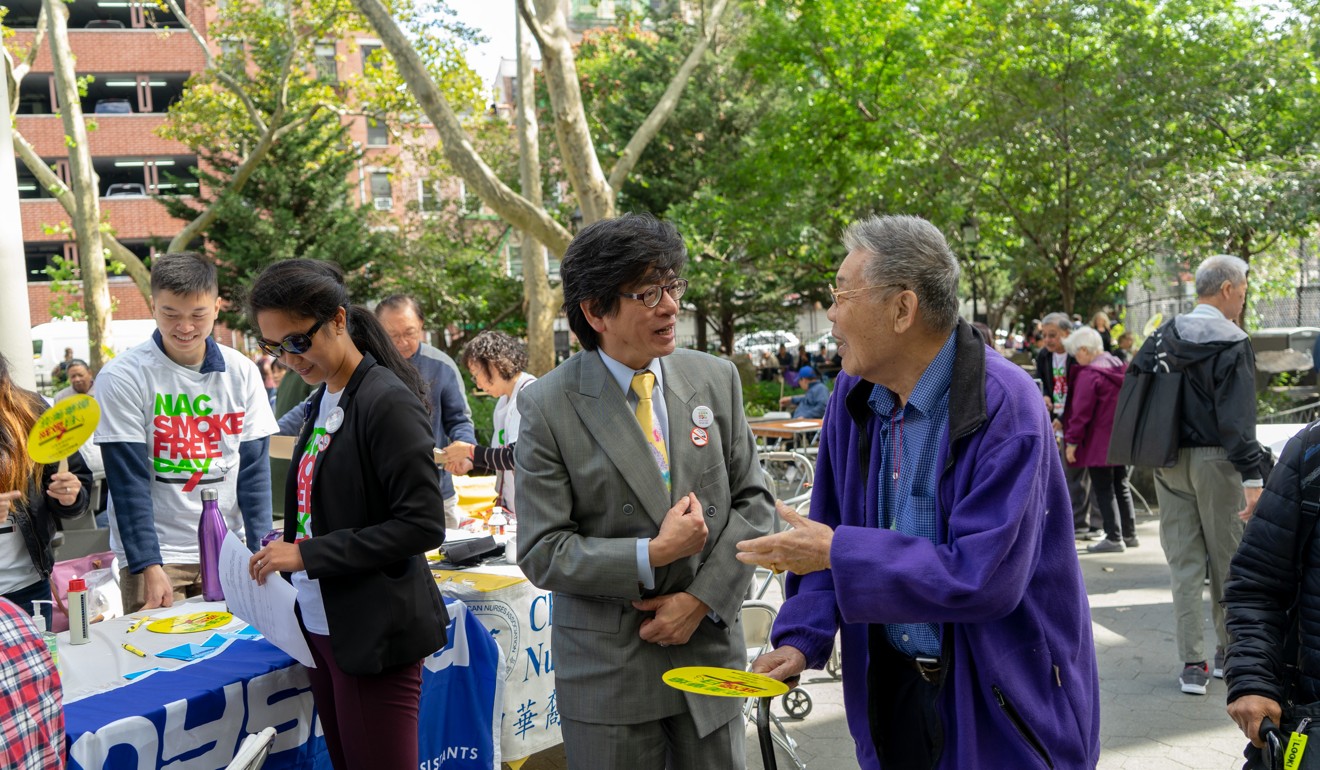
New York Chinatown fights smoking as lung cancer deaths rise
- City rolls out first antismoking campaign that specifically targets Chinese men
- Restaurant workers and builders are among the biggest smokers
Outside Big Wong, a Cantonese restaurant in Manhattan’s Chinatown, a man took a puff on a cigarette as he watched people pass by.
The 70-year-old said he had been smoking for more than 50 years.
“I started smoking when I was in China. It’s an old bad habit,” he said.
He would not give his name – a familiar response from smokers who often say they are ashamed to talk about it.
In Chinatown, the habit has become notorious, with a higher proportion of men there smoking than any other ethnic community in New York City.
Health officials said the figure was 27 per cent and incidents of lung cancer were rising.
With more than 100 new cases in the neighbourhood in the last five years, the Chinese-American community has one of the highest rates of the disease in the city, according to the Department of Health.
Chinese men represented more than half of the new cases diagnosed and while lung cancer deaths were down 16 per cent in the city, from 2000 to 2014, they increased 70 per cent among Chinese men, one report showed.
Alarmed by the trend, the city recently began its first antismoking campaign that specifically targeted Chinese men.

The Chinese-American Medical Society is one of the organisations running the campaign, which included a smoke-free day event in September. Free counselling, screening and patches were given out at Columbus Park and locals were give health check-ups.
Dr Chun Yip, a clinical professor at Columbia University Medical Centre, who took part in the event,
said only three out of the 50 people tested that day had abnormal slow peak flow – the amount of air coming out of the lungs.
Liverpool blues: the sad decline of Europe’s oldest Chinatown
But in a neighbourhood where restaurant workers and builders make up most of the smokers, health groups are struggling to make progress.
“We have no idea how to reach them,” said Warren Chin, executive director of Chinese-American Medical Society.
“We tried to reach them through their employers and tell them about this smoking issue, but there’s no incentive for them to help.”

The society has been trying to get its message across with press conferences about the consequences of smoking and a national hotline to help people quit.
May Koo, a Chinese-speaking counsellor at the Asian Smokers’ Quitline, said it was difficult to reach restaurant workers and builders because of their schedules and long working hours.
“Many Chinese restaurant workers in New York City go to work at 7am and leave at 12am. Smoking is the only time they can take a break,” Koo said.
Chinese to live longer than Americans by 2040, Spanish to live longest, study shows
She also said workers who are under great pressure smoke to deal with stress.
One factor that hinders Chinese men from quitting is their long history of smoking.
Leo Li, a health coach with the Quit Smoking Programme at the Charles B. Wang Community Health Centre, said most people who seek his help have been smoking for at least a decade.
“They have started smoking since they were in China, where smoking is even more common, and the working environment here just perpetuates that habit,” Li said.
Many Chinese restaurants workers in New York City go to work at 7am and leave at 12am. Smoking is the only time they can take a break
China has the largest smoking population in the world. In 2014, the government estimated there were 300 million smokers in China.
Li said most people he helped were middle-aged men who smoked up to 20 cigarettes a day.
Similarly, Koo’s clients were mostly in their 50s or 60s, with some starting smoking when they were as young as 12.
Many said they became determined to quit after the birth of their grandchildren, while others were simply fed up with their wives complaining how bad it was for their health.
The importance of family is a theme that features heavily in antismoking campaigns targeting Chinatown smokers.
One television commercial features an Asian man, surrounded by his wife and children, vanishing as the narrator warns “with every cigarette puff, you’re losing more time with your family”.

